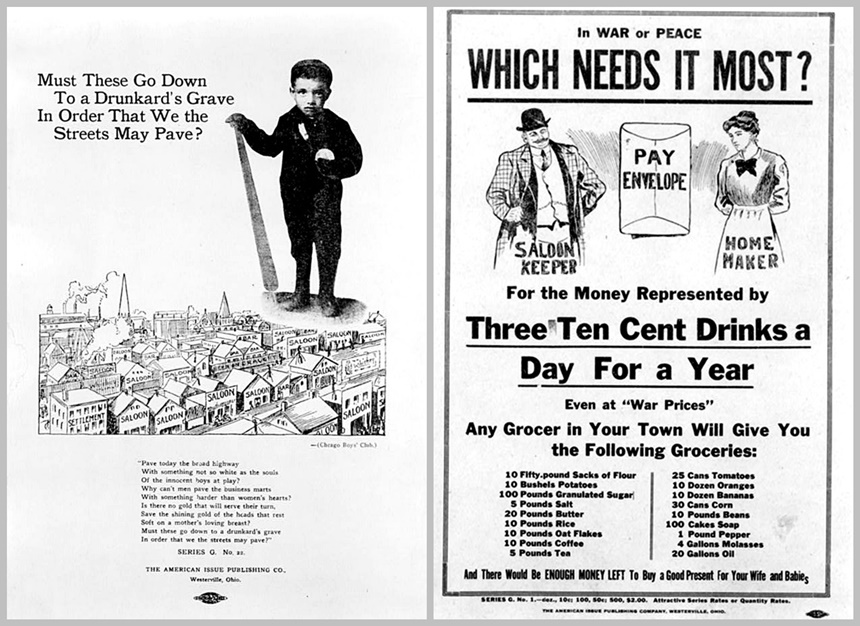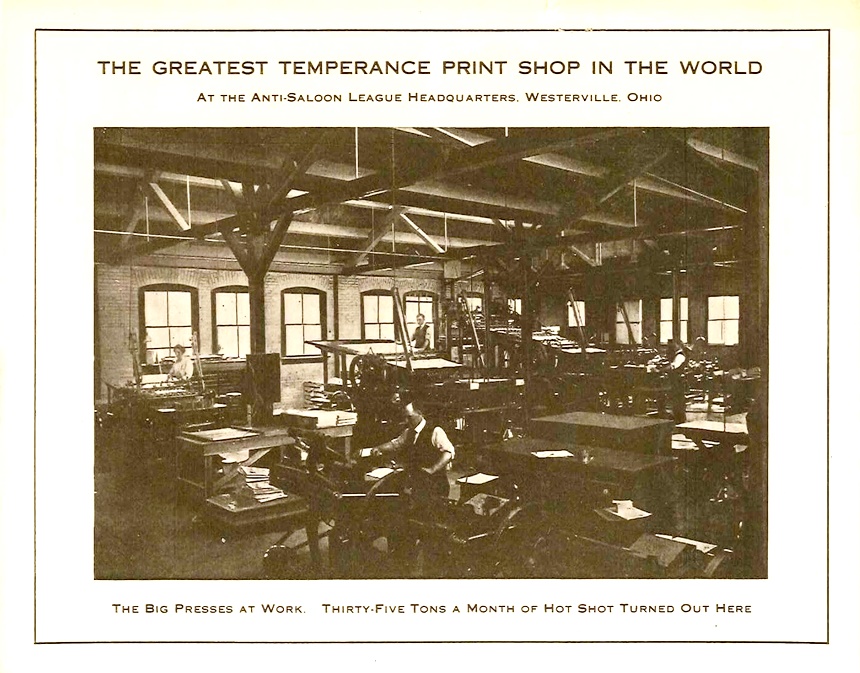Meanwhile, the Anti-Saloon League of America (ASL) was looking for a place to relocate their Washington, D.C. headquarters where they could set up a publishing company. Westerville seemed ideal because of its pro-temperance stance, its excellent postal and train service, and its offer of free land, according to Jackie Barton, Westerville History Museum’s manager.
But Westerville’s reputation likely sealed the deal. ASL lobbyist Wayne Wheeler once described Westerville as “so dry that you have to sprinkle the streets after a rain.”

Following its relocation to Westerville in 1909, the group quickly established the American Issue Publishing Co. and began churning out 40-plus tons of anti-alcohol materials in 16 languages every month. Proceeds from the sale of those materials funded the war on alcohol, and the ASL made progress in the battle where other groups hadn’t because they focused solely on alcohol, according to Barton. (Other groups, such as the Women’s Christian Temperance League, were also lobbying for women’s suffrage.)

“They weren’t the only temperance group, but they were the most successful because this was the only thing they cared about,” she says.

Naturally, ASL leadership and workers relocated to Westerville, too. At the height of the movement leading up to the enactment of Prohibition on January 17, 1920, ASL members occupied no fewer than 20 houses near Otterbein University. Today, those houses are part of the Temperance Row Historic District.
Seitz says after the repeal of Prohibition in December 1933, the ASL’s presence in Westerville began to dwindle until 1973, when it dissolved and gifted its headquarters to the Westerville Public Library. The building now houses the Westerville History Museum.
Despite Prohibition’s repeal, Westerville continued to fight against alcohol. A month before the 21st Amendment went into effect, the city voted to go dry again and remained alcohol-free until 1998, when voters approved a measure permitting a newly annexed section — and that section only — to sell alcohol.
The following year set the stage for even greater change. In 1999, the state of Ohio legislated that residents could vote to allow individual businesses to sell alcohol. Still, it would be five years before voters approved the sale of alcohol at the Old Bag of Nails, which reopened as Michael’s Pizza in 2006.